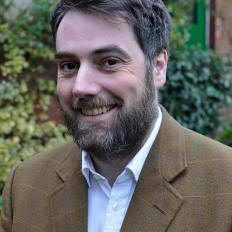Catholic Medical Quarterly Volume 71(2) May 2021
Correspondence
Accepting Trans Identity: a note of caution
Dr Joseph Shaw
 Sir,
Sir,
Further to the editorial in CMQ of February 2021 [1] I would like to
comment on the passage quoted from Prof Alexander Pruss on the
trans-gender issue (p10).
Pruss’s argument is that the Church’s practice on Ordination and on Marriage takes for granted the unalterability of sexual identity (‘whatever it is that “man” and “woman” refer to’), and so a change of sex is impossible. He then goes on to ask about the question of having a social sexual identity (‘gender’) which does not align with one’s ‘metaphysical’ sexual identity.
As Pruss notes the first argument cannot be expected to have force outside the Catholic Church, but even within the Church we have to take seriously the terms in which the transexual issue is being presented. Trans activists no longer talk about people ‘changing sex’, nor are they any longer interested in the distinction between ‘sex’ and ‘gender’. They tell us that some people may wish to change their bodies to align with their sexual identity, in the case of a mismatch, but this identity is itself something to be discovered, not changed, and is regarded as immutable.
The conflict with the practice of the Church arises not over whether sexual identity can be changed, but over whether the last word on sexual identity is given by one’s chromosomes or sex organs. The practice of the Church implies that that sexual identity can unproblematically be identified by observers. Trans activists claim that it may be discoverable only after years of introspection by the subject. For them, it would perhaps be ideal to bring up children in a ‘gender neutral’ manner until their own feelings can be ascertained, rather than ‘assigning’ new born infants a gender on the basis of a cursory examination of their sex organs. For them, again, changing the sex stated on a Birth Certificate is not a matter of rewriting history, as of correcting it.
What we are faced with here is an attempt to make sexual identity, as it has been understood up to this point, a concept with no application. One might think that it would continue to have a role at least in identifying people who are subject to cervical or prostate cancer, for example, but the latest developments suggest otherwise. The trans-inclusive approach is to say that men can have cervixes, and women prostates, not because they have the ‘wrong’ body, but because their self-discovered identity as men or women includes their bodies. Those who feel like women, are women, regardless of their genetic makeup, and if they are women, their bodies are female bodies.
The new conception of sexual identity is lacking in content. In the absence of a sexual identity based on genetics or physical characteristics, there seems to be no answer to the question ‘What does it feel like, to feel like a woman?’This is why some trans activists appeal to superficial markers of sexual identity such as the wearing of skirts for women, and others (such as George Gillett in the New Statesman)[2] want to give up on the idea of sex and gender altogether.
At this point we need to take a step back and ask ourselves whether any positive value is served by the traditional concept of sexual identity. The New Statesman article noted above is perfectly correct that the point of making a distinction between men and women is to treat them differently from each other, as the Church does.Having spent a century, as a society, in trying to treat them less differently than they had been treated, we are faced with the unfamiliar question of whether there is anything good about imposing a sexual identity on people with a view to engaging in discrimination on that basis.
It is not enough to say that biological sexual differences are objective facts. Hair-colour differences are objective facts and yet have no social or legal significance. The question is about the value of institutions and practices, such as marriage, the priesthood, and gender roles, which make something of this objective reality. If we believe that they are part of God’s ordering of creation, and enable us to flourish as human beings, then we must be prepared to defend these ideas to an increasingly sceptical cultural elite.
References
- Thevasathan P (2021) Accepting trans identity: A note of caution. Catholic Medical Quarterly Volume 71(1) February 2021
- George Gillet “We shouldn’t fight for ‘Gender Equality’. We should fight to abolish gender” New Statesman 2nd October 2014
Dr Joseph Shaw MA, DPhil Oxf is Senior Research Fellow, St Benet’s Hall, Oxford University
